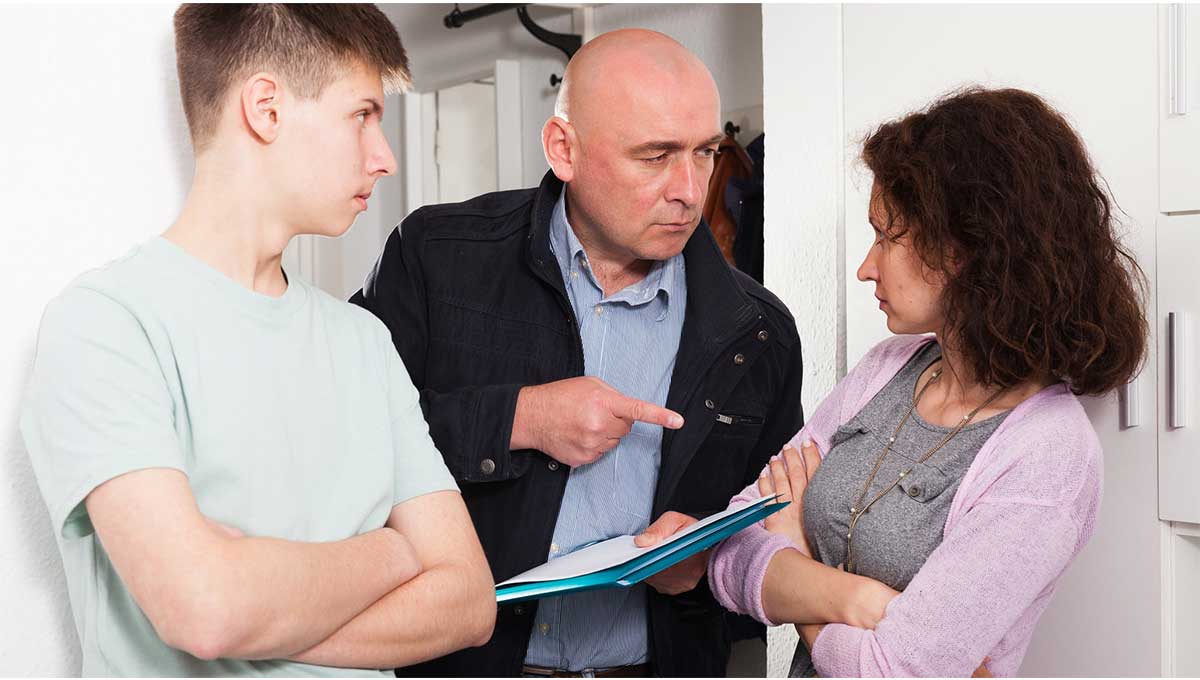Of all the world's millionaires, 90% make their money through real estate investments. One appeal of this approach is the increasingly popular prospect of passive income. Rather than trading time for money, you invest money in real estate and receive income through rent.
But for budding landlords, the effort of building a real estate portfolio is often anything but passive. Landlords have significant responsibilities and legal obligations. And if a toilet breaks in the middle of the night, it is their responsibility to deal with it.
Dealing with maintenance, repairs, finding tenants, and other hassles can quickly become a full-time job for those who can’t afford to hire a property manager. This, coupled with the effort of staying up to date on legal issues, can become overwhelming.
Luckily, there are resources available to help small-scale landlords. Landlord Self Help is a company committed to assisting small-scale landlords with the legal world of owning rental units.
Read on for our review of the Landlord Self Help company and an overview of the legal rights and responsibilities of a landlord.
Landlord Self Help: A Company Review
Landlord Self Help is a nonprofit legal clinic that specializes in supporting small-scale landlords across Ontario. They provide general information, resources, learning tools, and advice to help landlords understand their legal rights and responsibilities.
The company supports small landlords with 3 rental units or less who are financially unable to obtain legal advice from lawyers and paralegals. They don’t provide legal representation, but in some cases will help prepare legal documents.
They also have lobbying efforts for law reform that supports small landlords. Through their company, small-scale landlords can find a community and support network of individuals with similar interests and struggles.
Membership Program
Landlord Self Help offers a membership program. It costs $99 in annual membership dues.
One benefit is their comprehensive learning tools. The company creates learning modules, videos, FAQs, podcasts, fact sheets, and more to educate members about legal issues pertaining to landlords. These tools are vital to keeping landlords up to date as the rules and regulations change.
Landlord Self Help also provides rental tools for their members, including:
- An additional clauses addendum for lease forms
- Rental Application
- Inspection Report
- Guarantor Form for rent
These tools help small-scale landlords stay organized. Members also receive a Quarterly Newsletter Subscription that keeps the community up to date on relevant legislature and trends. Overall, the program is effective in assisting small-scale landlords with navigating their legal responsibilities.
What Are My Rights as a Landlord?
As a landlord, you have certain rights. These rights start with choosing tenants. You are allowed to select tenants based on their income, credit score, credit references, and previous rental history.
You are not allowed to discriminate based on race, ethnicity, religion, sex, age, or sexual orientation. You can refuse tenants for pets, but in most cases cannot evict them if they violate the "no pets" policy in your rental agreement. The exception is if the pet damages the property, is a dangerous breed, or the tenant does not properly clean up after the animal.
You have the right to collect up to one month's rent as a deposit before the tenant moves in. You are also entitled to collect rent when it is due, as is outlined in your lease agreement with your tenant.
You have certain rights when it comes to entering the unit. You can enter the rental home for maintenance and repairs as long as you follow the guidelines for entry.
Typically, you are required to send a note 24 hours before entry and enter the rental unit between 8 am and 8 pm. You are also allowed to enter the unit without notice in emergency situations.
With 90 days' written notice, you are entitled to increase rent. You can only do so once in a 12 month period, and there are limits to how much the rent can increase that vary by province.
In certain situations, you have the right to evict a tenant. We will discuss this in more detail later.
What Is My Tenant Responsible For?
In a rental agreement, tenants also have responsibilities that they must uphold. First and foremost they are expected to pay rent on time. They cannot withhold rent for your failure to repair maintenance issues.
They are also responsible for behaving well on the property, cleaning, and repairing any damage that they or their guests cause (beyond regular wear and tear).
Tenants are also not allowed to harass or interrupt you. They must allow you entry for repairs (as long as you give them proper notice). And they should contact you about needed repairs or services in a timely manner.
What Am I Responsible For?
As the landlord of a rental property, you are responsible for meeting the minimum standards for the health and safety of your property. For example, the unit must meet fire safety regulations and local building codes.
You must also provide adequate access to hot and cold water, electricity, heat, and fuel. You cannot shut off these services, even if your tenant has not paid rent. Make sure you are up to date on the maintenance requirements, as they can vary by province.
As the landlord, you are responsible for cleaning and maintaining common or shared areas of the property, such as hallways or common spaces. You must also provide snow removal in the winter.
Can I Demand Tenant Insurance?
Tenant insurance is different from property insurance. It protects the tenant's personal property, living expenses, and liability insurance. Since the tenant does not own the property, their insurance does not cover the building itself.
Instead, tenant insurance provides coverage for living expenses in the case of a natural disaster or emergency, such as a fire or flood. If the home is rendered unlivable, any hotel costs or other expenses are covered under the renter's insurance.
It also covers their personal property from damage or theft up to a certain amount. And if someone is injured in the tenant's home, renter's insurance protects the tenant from a lawsuit.
Tenant insurance is not required by law, but landlords can require tenants to have tenant's insurance as part of the lease agreement.
When Can I Evict A Tenant And What For?
It is a good idea to have a thorough tenant screening process in place to protect from nightmare tenants. Unfortunately, in some cases, even the most thorough screening cannot shed light on a nightmare tenant until it is too late.
The laws for tenant eviction vary by province. A common reason for evicting a tenant is that they fail to pay rent. A pattern of behaviour that leads to damage to your property is another valid reason to pursue an eviction.
Additionally, evidence of illegal activities can be grounds for eviction. In all these cases, it is a good idea to document the behaviour. Any evidence, including correspondence, photos, or transaction history, can help in the case of an eviction.
What Is the Process of Filing for an Eviction?
Should it come to it, the process of filing for eviction is relatively straightforward, though it can be time-consuming. Eviction laws and processes vary slightly from province to province, so it is a good idea to research laws in your area and act accordingly. This is also something that the kind folks at Landlord Self Help can assist you with.
The general process of filing for an eviction begins with documenting and clearly defining the reason for eviction. You'll want to establish a clear pattern of behaviour, which can be used later in the process. You must then provide written notice to the tenant of the eviction.
At this stage, the tenant is not legally obligated to vacate the property, though in some cases they do. If they don't, you must continue to uphold all of your responsibilities as a landlord. You cannot shut off the water, electricity, or heat; doing so is illegal and will look bad for you down the line.
You can then file an application to evict the tenant and go through a hearing. At the hearing, you will use the evidence you've gathered previously to make your case for evicting the tenant. If all goes well, you will obtain your eviction order.
Usually at this stage tenants will comply with the eviction, but if they do not you can go through the sheriff and have them legally removed from the property.
Get Help Renting or Leasing Your Property
There is a lot to keep track of when it comes to fulfilling your responsibilities as a landlord. You must also stay aware of your rights and your tenant's rights. Landlord Self Help is a great resource to help stay up to date with all the legal aspects of renting or leasing your property.
And if you are looking to grow your rental portfolio, check out our list of top mortgage companies. You can use it to compare rates to ensure you find the best Canadian lender to meet your needs!





